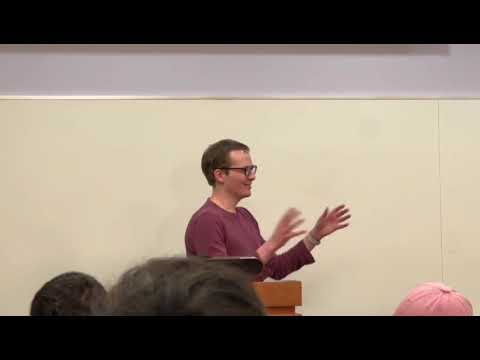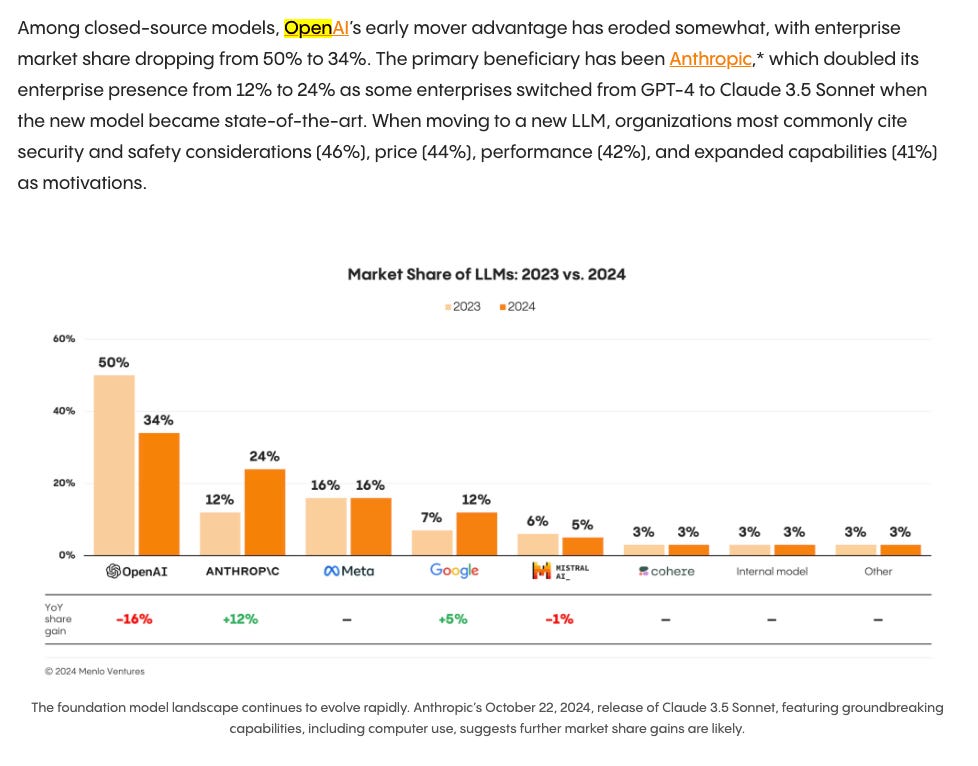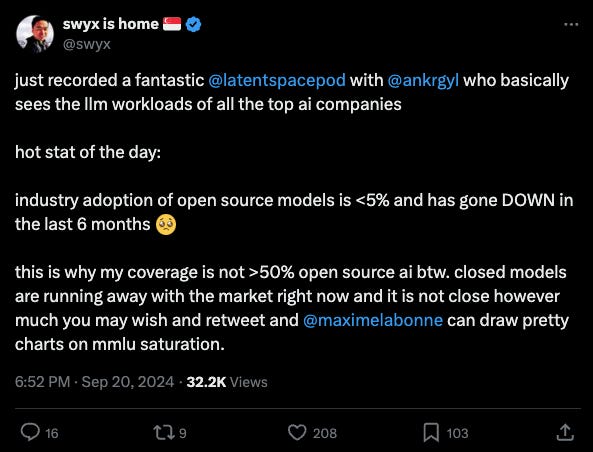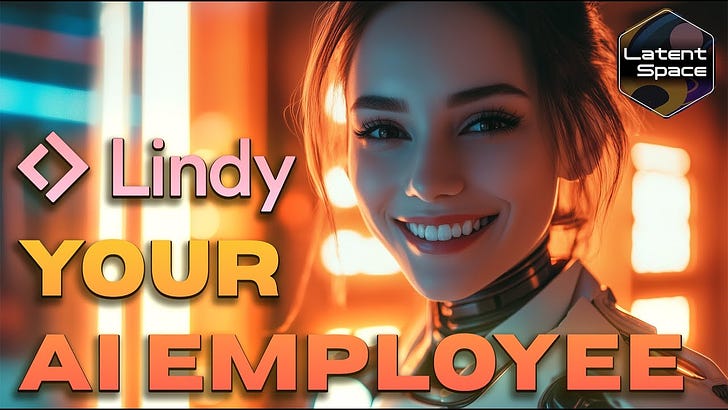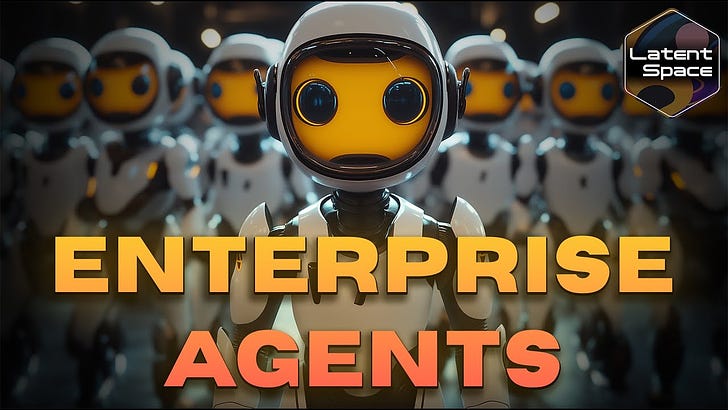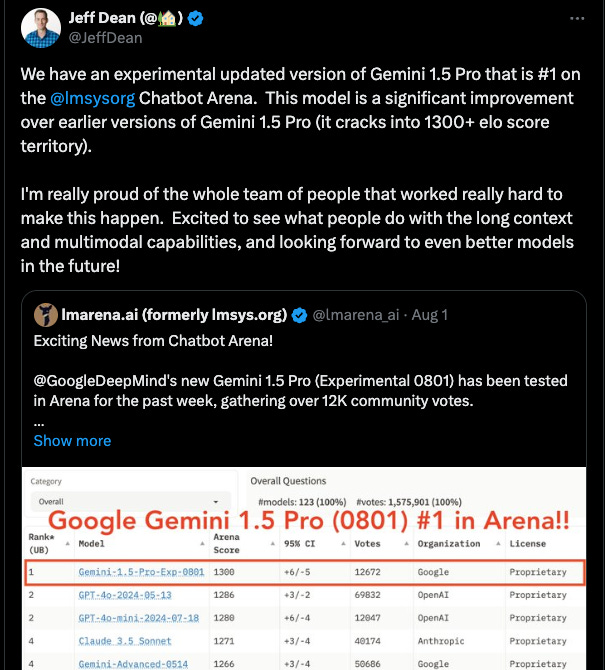Beating Google at Search with Neural PageRank and $5M of H200s — with Will Bryk of Exa.ai
Description
Applications close Monday for the NYC AI Engineer Summit focusing on AI Leadership and Agent Engineering! If you applied, invites should be rolling out shortly.
The search landscape is experiencing a fundamental shift. Google built a >$2T company with the “10 blue links” experience, driven by PageRank as the core innovation for ranking. This was a big improvement from the previous directory-based experiences of AltaVista and Yahoo. Almost 4 decades later, Google is now stuck in this links-based experience, especially from a business model perspective.
This legacy architecture creates fundamental constraints:
* Must return results in ~400 milliseconds
* Required to maintain comprehensive web coverage
* Tied to keyword-based matching algorithms
* Cost structures optimized for traditional indexing
As we move from the era of links to the era of answers, the way search works is changing. You’re not showing a user links, but the goal is to provide context to an LLM. This means moving from keyword based search to more semantic understanding of the content:
The link prediction objective can be seen as like a neural PageRank because what you're doing is you're predicting the links people share... but it's more powerful than PageRank. It's strictly more powerful because people might refer to that Paul Graham fundraising essay in like a thousand different ways. And so our model learns all the different ways.
All of this is now powered by a $5M cluster with 144 H200s:
This architectural choice enables entirely new search capabilities:
* Comprehensive result sets instead of approximations
* Deep semantic understanding of queries
* Ability to process complex, natural language requests
As search becomes more complex, time to results becomes a variable:
People think of searches as like, oh, it takes 500 milliseconds because we've been conditioned... But what if searches can take like a minute or 10 minutes or a whole day, what can you then do?
Unlike traditional search engines' fixed-cost indexing, Exa employs a hybrid approach:
* Front-loaded compute for indexing and embeddings
* Variable inference costs based on query complexity
* Mix of owned infrastructure ($5M H200 cluster) and cloud resources
Exa sees a lot of competition from products like Perplexity and ChatGPT Search which layer AI on top of traditional search backends, but Exa is betting that true innovation requires rethinking search from the ground up. For example, the recently launched Websets, a way to turn searches into structured output in grid format, allowing you to create lists and databases out of web pages. The company raised a $17M Series A to build towards this mission, so keep an eye out for them in 2025.
Chapters
* 00:00:00 Introductions
* 00:01:12 ExaAI's initial pitch and concept
* 00:02:33 Will's background at SpaceX and Zoox
* 00:03:45 Evolution of ExaAI (formerly Metaphor Systems)
* 00:05:38 Exa's link prediction technology
* 00:09:20 Meaning of the name "Exa"
* 00:10:36 ExaAI's new product launch and capabilities
* 00:13:33 Compute budgets and variable compute products
* 00:14:43 Websets as a B2B offering
* 00:19:28 How do you build a search engine?
* 00:22:43 What is Neural PageRank?
* 00:27:58 Exa use cases
* 00:35:00 Auto-prompting
* 00:38:42 Building agentic search
* 00:44:19 Is o1 on the path to AGI?
* 00:49:59 Company culture and nap pods
* 00:54:52 Economics of AI search and the future of search technology
Full YouTube Transcript
Please like and subscribe!
Show Notes
* ExaAI
* Websets
Transcript
Alessio [00:00:00 ]: Hey, everyone. Welcome to the Latent Space podcast. This is Alessio, partner and CTO at Decibel Partners, and I'm joined by my co-host Swyx, founder of Smol.ai.
Swyx [00:00:10 ]: Hey, and today we're in the studio with my good friend and former landlord, Will Bryk. Roommate. How you doing? Will, you're now CEO co-founder of ExaAI, used to be Metaphor Systems. What's your background, your story?
Will [00:00:30 ]: Yeah, sure. So, yeah, I'm CEO of Exa. I've been doing it for three years. I guess I've always been interested in search, whether I knew it or not. Like, since I was a kid, I've always been interested in, like, high-quality information. And, like, you know, even in high school, wanted to improve the way we get information from news. And then in college, built a mini search engine. And then with Exa, like, you know, it's kind of like fulfilling the dream of actually being able to solve all the information needs I wanted as a kid. Yeah, I guess. I would say my entire life has kind of been rotating around this problem, which is pretty cool. Yeah.
Swyx [00:00:50 ]: What'd you enter YC with?
Will [00:00:53 ]: We entered YC with, uh, we are better than Google. Like, Google 2.0.
Swyx [00:01:12 ]: What makes you say that? Like, that's so audacious to come out of the box with.
Will [00:01:16 ]: Yeah, okay, so you have to remember the time. This was summer 2021. And, uh, GPT-3 had come out. Like, here was this magical thing that you could talk to, you could enter a whole paragraph, and it understands what you mean, understands the subtlety of your language. And then there was Google. Uh, which felt like it hadn't changed in a decade, uh, because it really hadn't. And it, like, you would give it a simple query, like, I don't know, uh, shirts without stripes, and it would give you a bunch of results for the shirts with stripes. And so, like, Google could barely understand you, and GBD3 could. And the theory was, what if you could make a search engine that actually understood you? What if you could apply the insights from LLMs to a search engine? And it's really been the same idea ever since. And we're actually a lot closer now, uh, to doing that. Yeah.
Alessio [00:01:55 ]: Did you have any trouble making people believe? Obviously, there's the same element. I mean, YC overlap, was YC pretty AI forward, even 2021, or?
Will [00:02:03 ]: It's nothing like it is today. But, um, uh, there were a few AI companies, but, uh, we were definitely, like, bold. And I think people, VCs generally like boldness, and we definitely had some AI background, and we had a working demo. So there was evidence that we could build something that was going to work. But yeah, I think, like, the fundamentals were there. I think people at the time were talking about how, you know, Google was failing in a lot of ways. And so there was a bit of conversation about it, but AI was not a big, big thing at the time. Yeah. Yeah.
Alessio [00:02:33 ]: Before we jump into Exa, any fun background stories? I know you interned at SpaceX, any Elon, uh, stories? I know you were at Zoox as well, you know, kind of like robotics at Harvard. Any stuff that you saw early that you thought was going to get solved that maybe it's not solved today?
Will [00:02:48 ]: Oh yeah. I mean, lots of things like that. Like, uh, I never really learned how to drive because I believed Elon that self-driving cars would happen. It did happen. And I take them every night to get home. But it took like 10 more years than I thought. Do you still not know how to drive? I know how to drive now. I learned it like two years ago. That would have been great to like, just, you know, Yeah, yeah, yeah. You know? Um, I was obsessed with Elon. Yeah. I mean, I worked at SpaceX because I really just wanted to work at one of his companies. And I remember they had a rule, like interns cannot touch Elon. And, um, that rule actually influenced my actions.
Swyx [00:03:18 ]: Is it, can Elon touch interns? Ooh, like physically?
Will [00:03:22 ]: Or like talk? Physically, physically, yeah, yeah, yeah, yeah. Okay, interesting. He's changed a lot, but, um, I mean, his companies are amazing. Um,
Swyx [00:03:28 ]: What if you beat him at Diablo 2, Diablo 4, you know, like, Ah, maybe.
Alessio [00:03:34 ]: I want to jump into, I know there's a lot of backstory used to be called metaphor system. So, um, and it, you've always been kind of like a prominent company, maybe at least RAI circles in the NSF.
Swyx [00:03:45 ]: I'm actually curious how Metaphor got its initial aura. You launched with like, very little. We launched very little. Like there was, there was this like big splash image of like, this is Aurora or something. Yeah. Right. And then I was like, okay, what this thing, like the vibes are good, but I don't know what it is. And I think, I think it was much more sort of mayb

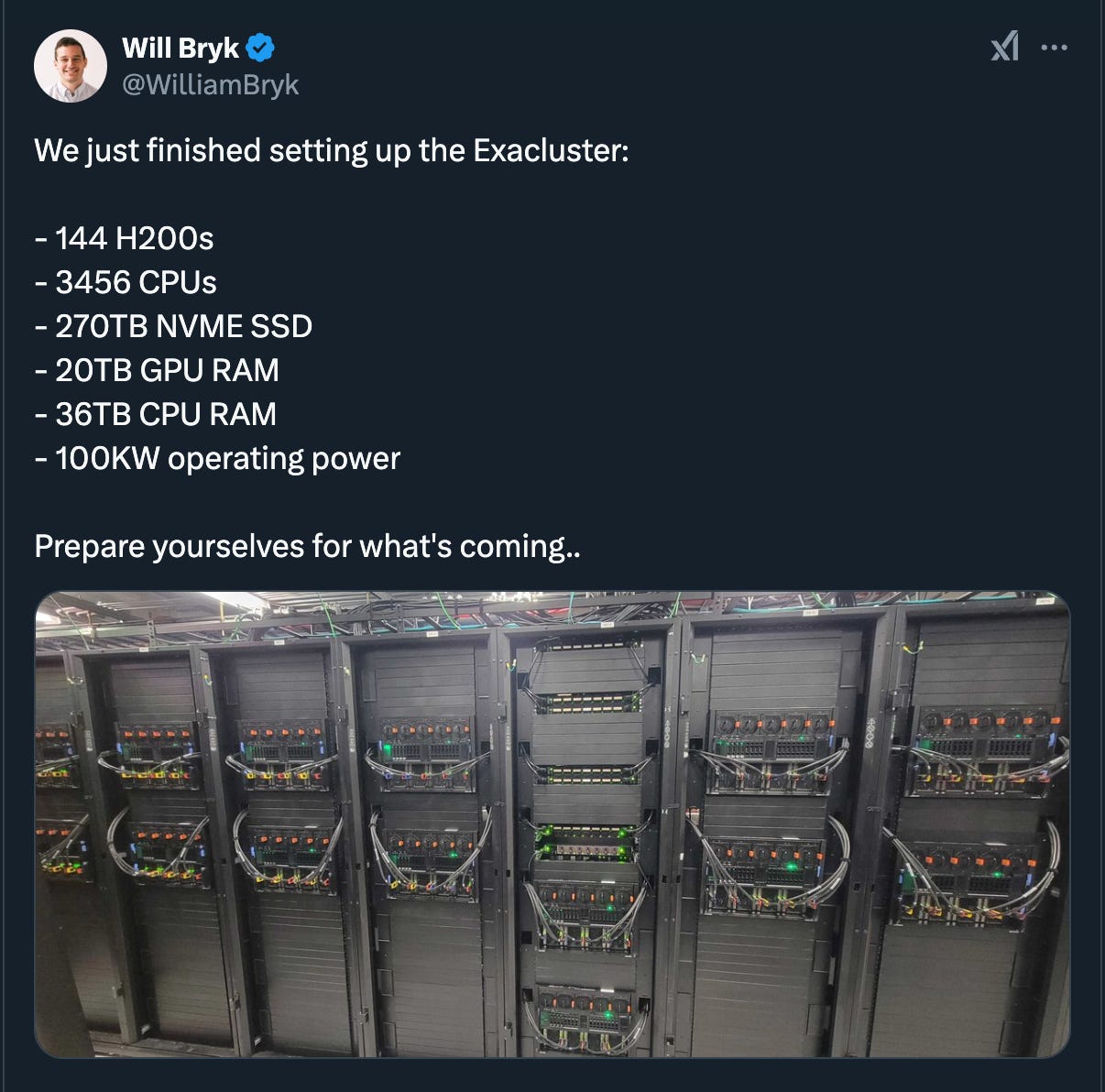
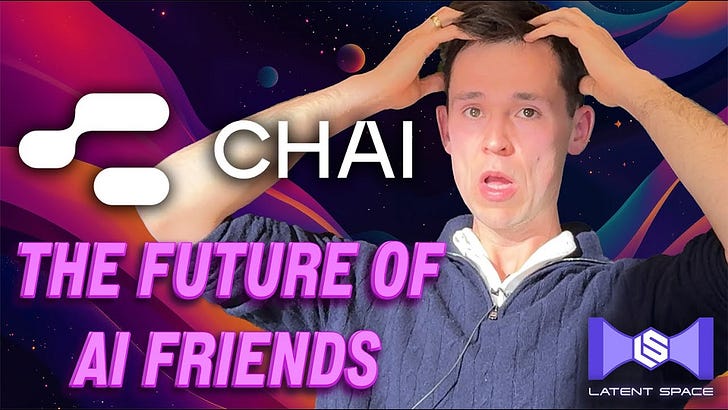

![[Ride Home] Simon Willison: Things we learned about LLMs in 2024 [Ride Home] Simon Willison: Things we learned about LLMs in 2024](https://s3.castbox.fm/0c/b6/ce/a4e5992f093b57336ea469ba58d85a340b_scaled_v1_400.jpg)
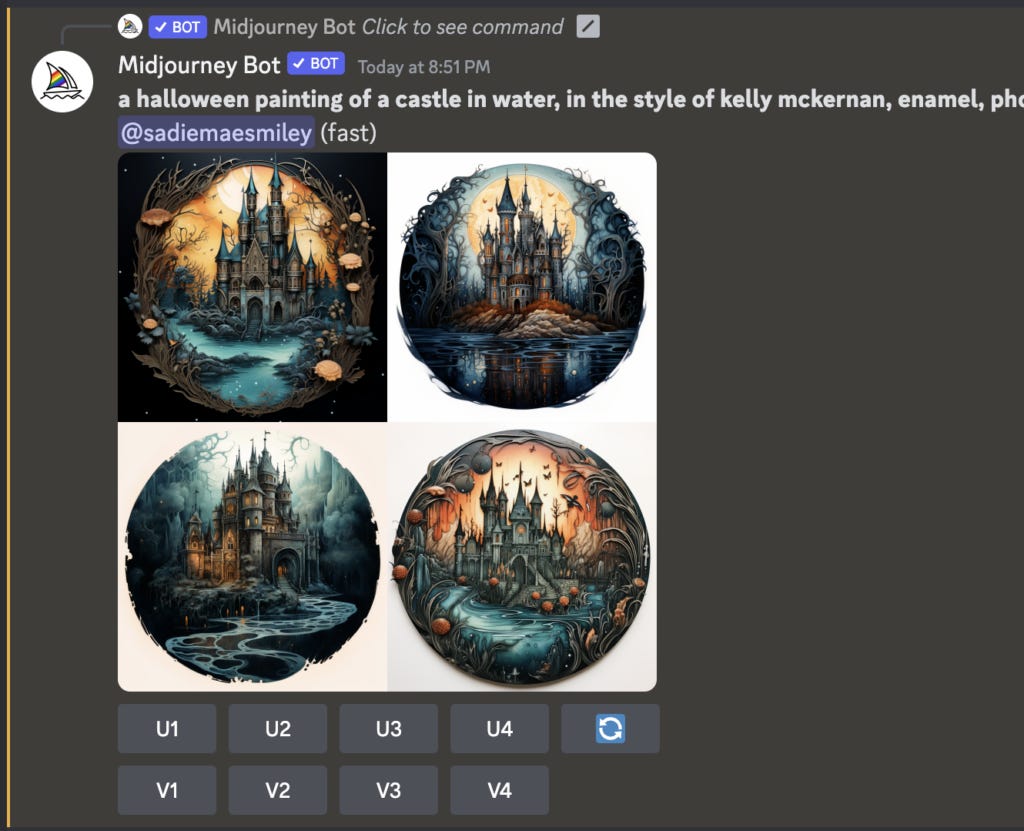
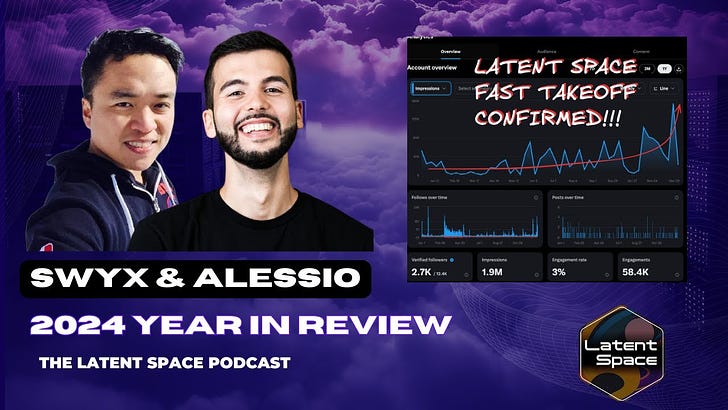
![2024 in Agents [LS Live! @ NeurIPS 2024] 2024 in Agents [LS Live! @ NeurIPS 2024]](https://s3.castbox.fm/3d/de/82/0d8893949c705b611e5972f65f39c94b2c_scaled_v1_400.jpg)
![2024 in Synthetic Data and Smol Models [LS Live @ NeurIPS] 2024 in Synthetic Data and Smol Models [LS Live @ NeurIPS]](https://substackcdn.com/feed/podcast/1084089/post/153567986/bbef81072a7602f9a124ffd13d17f992.jpg)
![2024 in Post-Transformers Architectures (State Space Models, RWKV) [LS Live @ NeurIPS] 2024 in Post-Transformers Architectures (State Space Models, RWKV) [LS Live @ NeurIPS]](https://substackcdn.com/feed/podcast/1084089/post/153556680/f4d6f1a19e9a93b6e342a5bbe8815cd2.jpg)
![2024 in Open Models [LS Live @ NeurIPS] 2024 in Open Models [LS Live @ NeurIPS]](https://substackcdn.com/feed/podcast/1084089/post/153509369/8926d1ae15dfa6cacc2b0cd7158b07d3.jpg)
![2024 in Vision [LS Live @ NeurIPS] 2024 in Vision [LS Live @ NeurIPS]](https://s3.castbox.fm/3e/66/20/159303c2f347870301315dc9e247e2ade0_scaled_v1_400.jpg)
![2024 in AI Startups [LS Live @ NeurIPS] 2024 in AI Startups [LS Live @ NeurIPS]](https://substackcdn.com/feed/podcast/1084089/post/153389370/2d1909e2fbbd5c9267a782756c04d8a3.jpg)

